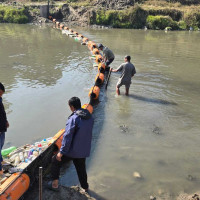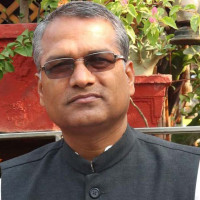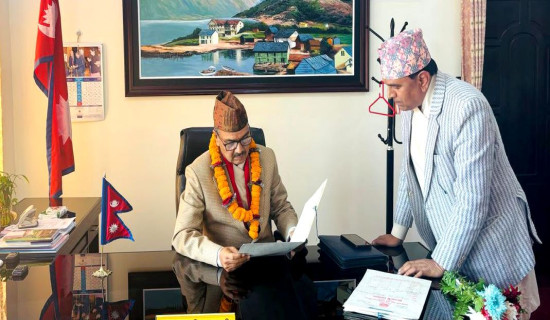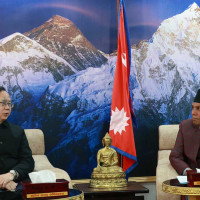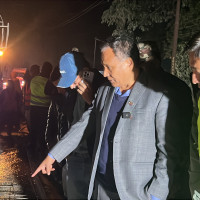- Sunday, 21 December 2025
Wheelchair users voice for easier mobility
Kathmandu, Mar. 2: More than a hundred wheelchair users gathered in the open space of Bhrikutimandap in Kathmandu Wednesday morning to mark the 15th International Wheelchair Day with the motto "Appropriate wheelchair, safe and accessible mobility, our right."
On the occasion, the wheelchair users had circled Tundikhel to draw the attention of the government to the difficulties they have been facing over the years.
However, as soon as they began to circle Tundikhel, the wheelchair users started struggling to move ahead due to traffic congestion and bumpiness.
"We face innumerable problems as soon as we leave our house. Reaching a destination is always an ordeal. Sometimes we even return from halfway when it seems impossible to reach a certain office due to poor road infrastructure," echoed a group of wheelchair users gathered at Bhrikutimandap.
While footpaths of the Kathmandu Valley are difficult to use even by people with no disabilities, for those suffering from different impairments that limit their ability to walk, commuting along the Valley alone is something they can never imagine. Moreover, when we look at places outside the Kathmandu Valley, footpaths are rare.
"After many lobbying and request, a first-of-its-kind disable-friendly footpath construction had started from Jorpati to the Bagmati River a little while ago. The construction was going in full-swing, but the Nepal Telecom destroyed it citing wire-related issues. Now, the work has completely stalled," said Kanak Mani Dixit, a founding member of the Spinal Injury Rehabilitation Centre.
Dixit, who is also the chairman of Sajha Yatayat, informed that while the organisation requested Ashok Leyland to manufacture disable-friendly buses to ease travel of disabled individuals.
"Bhrikutimandap is the place where we have our office. The office of National Federation of the Disabled-Nepal (NFDN) is also located here. This is the place where people with disabilities gather, but it is difficult to reach the office due to potholes along the road. Moreover, we cannot find a free space in Bhrikutimandap as it is occupied by commercial fairs and events most of the times," said Deka Raj Bhattarai, president of National Disable Fund.
For many who have been raising voice for people with disabilities, the scenario is still similar to what it was decades ago.
"I crawled when I was a child as I couldn’t walk and there was no wheelchair. I suffered bullying during my school days, so I came to Kathmandu in search of support for people with disabilities when I was 19. Since then, many decades have passed; however, the scenario faced by disabled individuals is same," said Sanjay Bantawa, a wheelchair user who works as a lecturer at the Lalit Kala Campus.
Likewise, speaking at the programme, Bagmati Provincial Assembly member Laxmi Ghimire, who is also a wheelchair user, said that the government was wasting its money in unnecessary sectors while the services for disabled individuals were always neglected.
"I am a provincial assembly member. What I saw as a member is that the provincial government is useless. Ministers and secretaries use cars worth millions or rupees. They need quality services.
However, we, the people with disabilities, are bound to take the streets only for basic rights," said Ghimire.
According to the participants and representatives of disabled associations, they were bound to visit non-government agencies and find helping hands for support, such as wheelchair and scooter with support, because the government never heard them.
Today’s programme was also organised with the support of 25 organisations, without a single government body.
Moreover, stakeholders argued that Nepal is a country with difficult terrain making it more difficult for wheelchair users to travel from one place to another outside the Valley with non-existent footpaths.
"We need local governments to be more sensitive and active. They should keep records of people with disabilities in their area and provide them with necessary support. The authorities should make us believe that they are there for people with disabilities as well, or else, we have no one to rely on anymore," said Anita Ghimire, woman vice chairperson of the NFDN.




